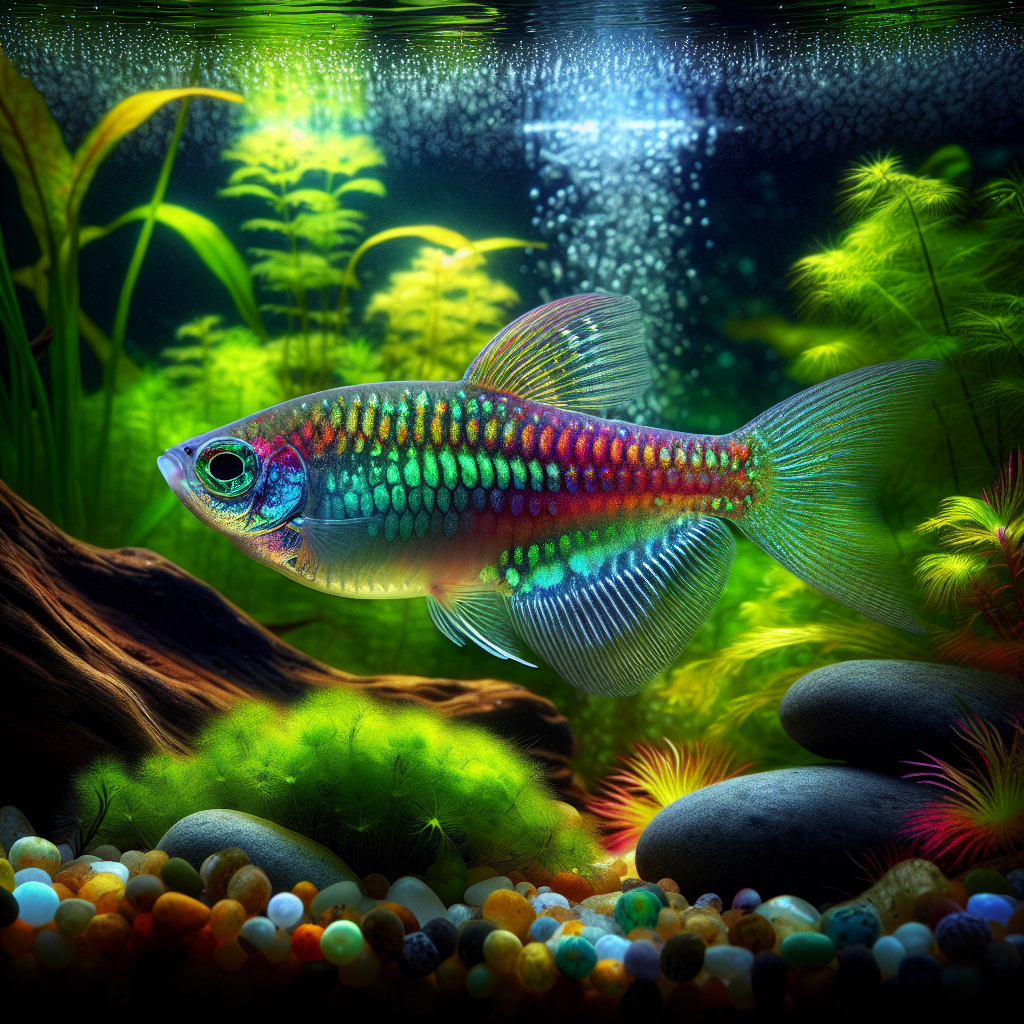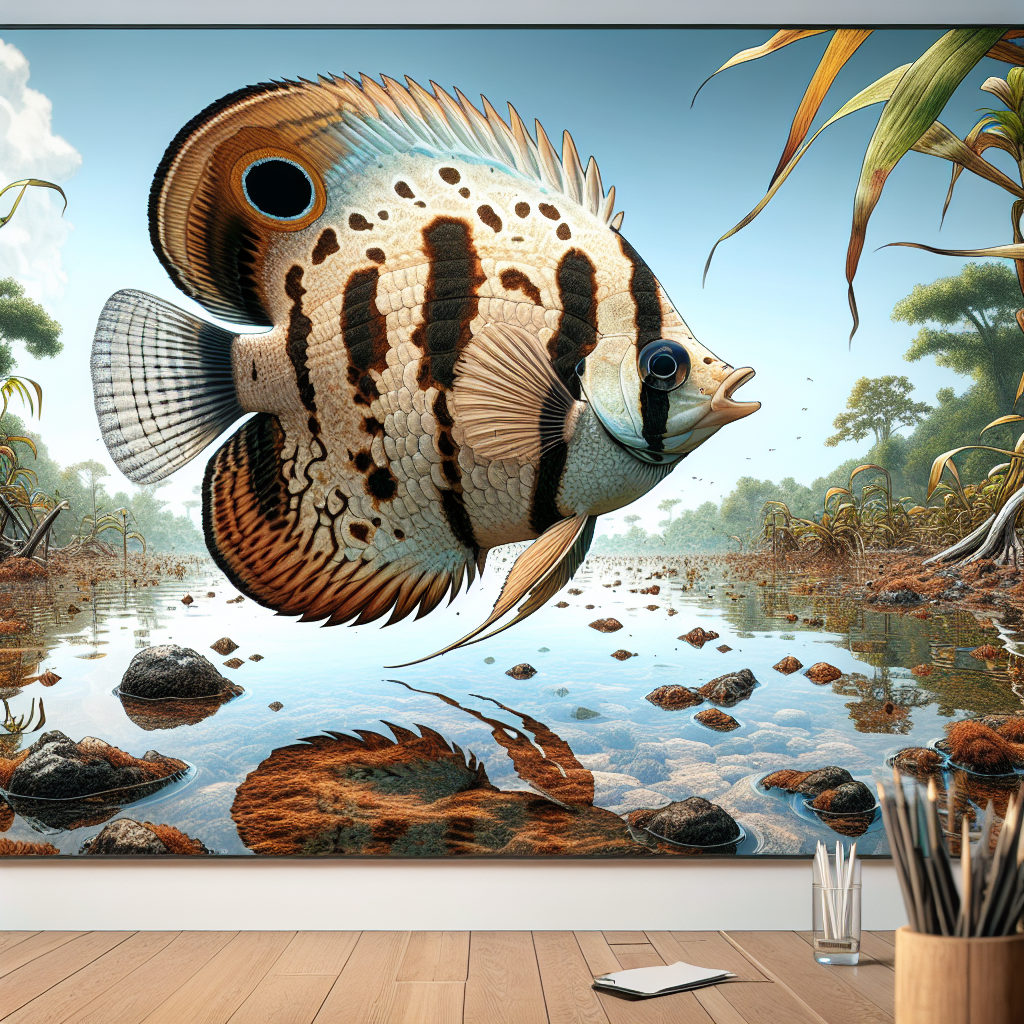Enigmatic Freshwater Wonders
Embarking on a journey through the remarkable world of aquariums leads to the discovery of an array of unique and lesser-known freshwater species. Each organism presents an extraordinary set of characteristics that captivates the imagination and brings diversity to any aquatic habitat. Engaging in their environment offers a front-row seat to the incredibly intricate world that exists beneath the water's surface, where each species plays a crucial role in the aquatic tapestry. For more information on unique freshwater species, explore our guide on freshwater species.
Discovering Uncharted Swimmers
Freshwater ecosystems are teeming with a variety of fish and invertebrates, many still undiscovered or rarely seen in home aquariums. From vibrant fish to stealthy invertebrates, these uncommon species can offer a unique twist to your aquatic collection and serve as a natural conversation starter.
Rarity in the Waters
When venturing into the realm of rare and uncommon freshwater species, hobbyists encounter fish like the ethereal Glass Catfish, with its almost completely transparent body, or the striking Celestial Pearl Danio, adorned with star-like spots resembling a nightly sky.

Another crowd pleaser is the enigmatic Vampire Crab, a colorful crustacean well-suited for 'paludarium' setups that replicate both land and water environments. The poignant color contrast in their claws and carapace against the greens of aquatic plants creates a truly entrancing view. Learn more about setting up the perfect environment in our aquarium setup guide.
Unusual Inhabitants Up-Close
For enthusiasts looking to observe some of these creatures' distinct behaviors, there's the African Butterfly Fish, which skims the water's surface resembling a floating leaf, perfectly adapted for ambushing unwary prey. Then, there's the ropefish, an elongated specimen that slithers through the water like a serpent, evoking wonder with its prehistoric appearance.

Creating a Niche Habitat
These rarer species often require specific conditions that mirror their native habitats. Aided by plant life, rocks, and driftwood, the environment can be tailored to ensure their health and wellbeing. For example, hosting a school of the delicate Chili Rasbora necessitates soft, acidic water and plenty of cover to emulate their Southeast Asian peat swamp origins. Gather insights on aquarium plants in our aquarium plants section.
To assist in replicating these conditions, specialized equipment may be required. A reliable water testing kit is essential to maintain the delicate balance needed for these creatures to thrive.
Maintaining Ecological Balance
Understanding the symbiotic relationships and water parameters needed to sustain these species is key. Often, enthusiasts will combine both common and rare species to establish a balanced ecosystem, enabling natural interactions that enhance the aquarium's overall health.
It's crucial, however, to research compatibility thoroughly to avoid predatory behavior or environmental stress, which could be detrimental to the rare species and disrupt the tank's harmony.
Conservation Awareness
Cultivating an appreciation for these aquatic rarities often comes hand-in-hand with a commitment to conservation. Many uncommon species are sensitive to changes in their natural environment, and their presence in aquariums may raise awareness of their vulnerable status in the wild. Before acquiring rare species, it is advisable to ensure that they have been sourced sustainably and ethically. For more ideas on conservation and aquariums, check out this external resource about Rare Freshwater Aquarium Fish.
Enhancing Your Aquatic Journey
Introducing rare and uncommon freshwater species to your home aquarium not only brings aesthetic pleasure and a challenge to skilled aquarists but also broadens one’s understanding of aquatic biodiversity. With proper care and attention to their needs, these enigmatic creatures can become thriving members of an aquatic display that mesmerizes and educates all who observe them.
Remember that the key to a successful exotic aquarium lies in research, patience, and a profound respect for the delicate balance of life that these species depend on. Explore responsibly, and you'll enjoy the wondrous benefits of keeping rare freshwater gems in your aquatic oasis.